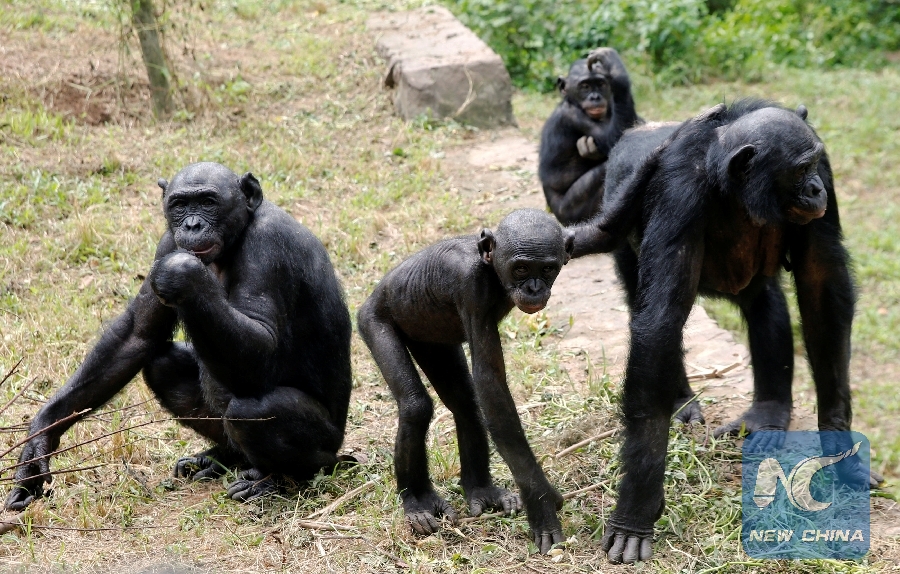
File Photo: Bonobo apes, primates unique to Congo and humankind's closest relatives, are seen at the Lola Ya Bonobo Sanctuary outside Kinshasa, Democratic Republic of Congo, March 2, 2019. (Xinhua/REUTERS)
WASHINGTON, May 20 (Xinhua) -- Scientists found that bonobo mothers would take actions to increase their sons' chance of becoming fathers, revealing for the first time the impact of bonobo mother's presence on the number of their grandchildren.
The study published on Monday in the journal Current Biology showed that bonobo mothers would prevent other males from mating and bring their sons close to ovulating females, thus improving their chance of fatherhood by threefold.
Scientists from the Max Planck Institute for Evolutionary Anthropology observed wild populations of bonobos in the Democratic Republic of Congo, and wild populations of chimpanzees in Cote d'Ivoire, Tanzania, and Uganda.
While both bonobo and chimpanzee mothers will back up their sons in conflicts between males, bonobo moms go further to help their sons' mating efforts.
They protect their sons' mating attempts from other males, intervene in other male's mating attempts and intentionally bring their sons around fertile females, according to the study.
Also, they have been observed to take advantage of their rank in the bonobo's matriarchal society to give their sons access to popular spots within social groups to elevate the sons' status, thus gaining better mating opportunities.
However, those interventions are rare among chimpanzees as chimp males are socially superior to females, so chimp mothers are less influential to do so.
The researchers suggested that those activities allowed for an indirect continuation of their genes, but bonobo moms did not give a leg-up to their daughters, according to the study.

